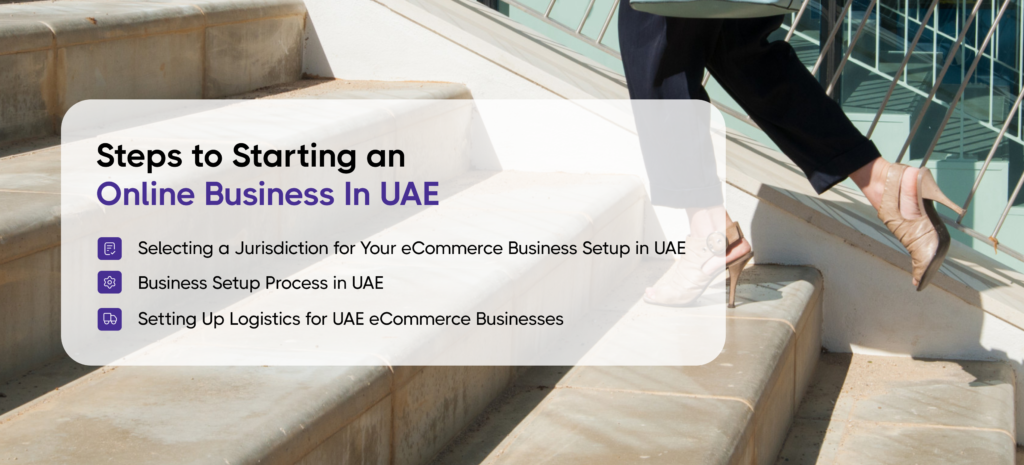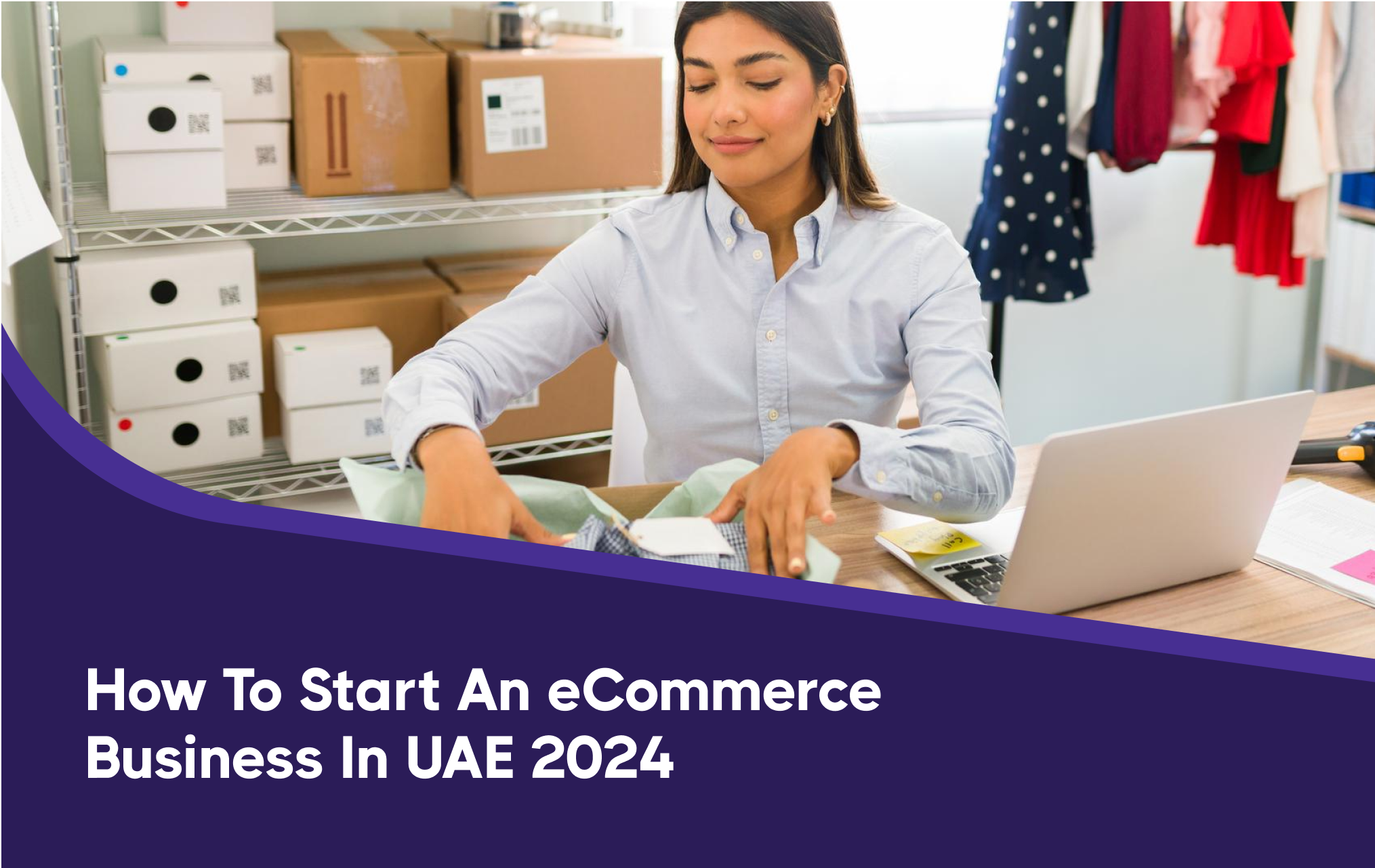The United Arab Emirates (UAE) has rapidly become a beacon for global eCommerce, bridging the East and West.
The ecommerce market in the UAE is predicted to expand 11.5% per year until 2029, making today your chance to enter this growing space.
This article is a guide to starting an online business in UAE, covering all of your needs from jurisdiction selection, business setup, logistics, and marketing tips. Let’s begin your eCommerce business setup process in UAE today.
The UAE eCommerce Industry Overview
The UAE is rapidly establishing itself as a global hub for eCommerce. With a tech-savvy population and high internet penetration, the UAE presents a promising market for online businesses.
- Market Size: In the Digital Commerce market, the number of users is expected to amount to 7.82m users by 2028.
- Consumer Behavior: High smartphone usage, along with 96% of the country’s people having access to the internet, drives significant mobile commerce.
- Government Support: Initiatives like Dubai CommerCity highlight government efforts to support eCommerce growth through advanced infrastructure and streamlined business processes.
This vibrant environment, backed by strategic government initiatives, offers a fertile ground for launching and scaling online businesses in the UAE.
Key Benefits of Starting an eCommerce Business in the UAE
Starting an eCommerce business in the UAE offers numerous advantages:
- Financially accessible: no paid-up capital requirements and the opportunity for 100% foreign ownership.
- Economically appealing: low tax rates and VAT exemptions on specific products.
- Efficient logistics system: an advanced logistics infrastructure, including state-of-the-art ports and airports.
- Strategic location: The UAE is strategically located, having access to three major transportation channels: land, sea, and air, as well as connecting Europe and Asia.
Steps to Starting An Online Business in UAE
1. Selecting a Jurisdiction for Your eCommerce Business Setup In UAE
Navigating the legal landscape is crucial for setting up your eCommerce business in the UAE. eCommerce businesses must first decide between setting up in a free zone or on the mainland, each offering distinct advantages.

eCommerce businesses set up in the mainland are registered with an Emirate Authority (Department of Economic Development) while those set up in a free zone are registered with a Free Zone Authority (of which there are over 45).
For a new eCommerce business, setting up in a free zone may be the more suitable option, however it depends on your goals. Here are some factors to keep in mind:
- Scope of business: Mainland businesses can operate anywhere in the UAE and internationally, while freezone businesses can only operate within their free zone and internationally.
- Taxes: In free zones, businesses are exempt from corporate or personal income tax. If registered in the mainland, there is a 9% corporate tax when profits exceed AED 375,000.
- Customs Duties: Mainland businesses must pay customs duties, while free zones are exempt.
- Ownership: Certain sectors allow for 100% foreign ownership in Mainland based businesses, however others require 51% local owners. In free zones, 100% foreign ownership is allowed.
- Visas: Mainland businesses have no restrictions on visas, while Free Zones have limitations (anywhere between 0-6 visas per licence).
Ultimately, it depends on your business needs (locations, visas, etc.), however, for most eCommerce businesses, registration in a Free Zone is the way to go.
2. Business Setup Process in UAE
Once jurisdiction is decided, the business registration process includes selecting a company name and registering a trademark.
It’s also essential that you apply for a UAE trade licence, which is issued by either DED for mainland businesses or the specific free zone that your business is operating in. The cost of this licence starts at AED 6,875.
3. Setting Up Logistics for UAE eCommerce Businesses
An effective logistics management system is vital for the success of any eCommerce business, and that means finding the right partners.
Whether you need courier services for smaller packages, freight for bigger shipments, or dedicated services specific to your needs, here at eShipperUAE, we take care of it all. Reach out to us today to set up the perfect logistics partnership for your eCommerce business.
Marketing Strategies for UAE Online Businesses
Marketing your eCommerce business effectively is crucial in today's competitive digital landscape. Key strategies include:
- Building a strong online presence with an optimized, user-friendly website.
- Engaging customers through SEO, content marketing, and PPC advertising.
- Integrating products into established UAE online marketplaces, such as Amazon, to significantly increase reach and sales potential.
Conclusion
Embarking on an eCommerce venture in the UAE in 2024 can be highly rewarding due to the country's robust economic policies, strategic location, and advanced infrastructure.
By planning your business setup carefully, leveraging effective logistics solutions, and employing smart marketing strategies, you can successfully tap into the lucrative UAE market.
Ready to start your eCommerce journey in the UAE with a trusted partner? Connect with us at eShipperUAE today, and let us help you make it a success.




